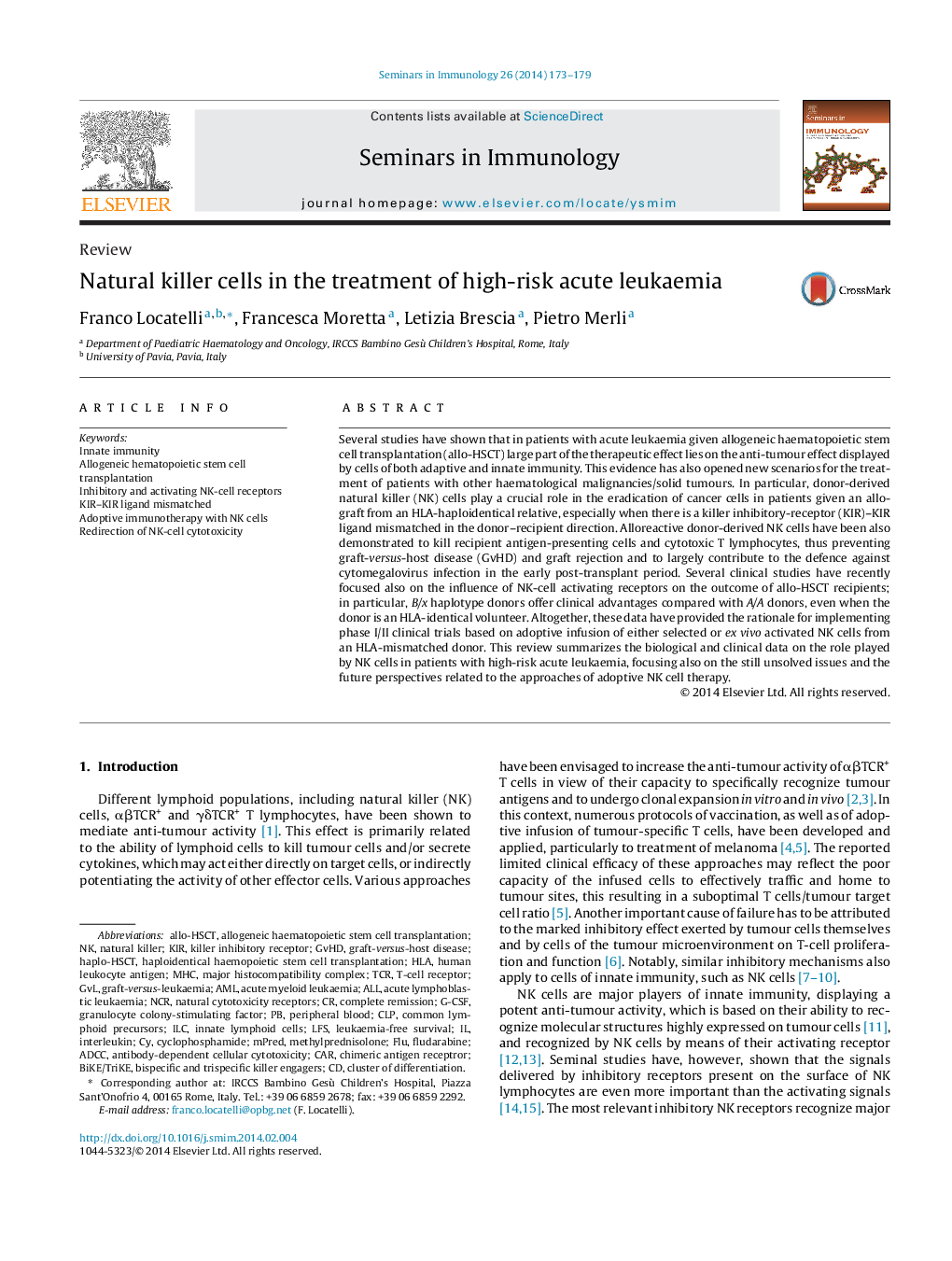| Article ID | Journal | Published Year | Pages | File Type |
|---|---|---|---|---|
| 3391363 | Seminars in Immunology | 2014 | 7 Pages |
•Alloreactive NK cells reduce the risk of leukaemia relapse after haploidentical HSCT.•Depletion of αβ T lymphocytes is a promising novel strategy of graft manipulation.•Activating receptors of NK cells play an important role in influencing the outcome.•Adoptive infusion of NK cells can be of benefit for patients with acute leukaemia.•NK cells can be specifically redirected towards tumour targets.
Several studies have shown that in patients with acute leukaemia given allogeneic haematopoietic stem cell transplantation (allo-HSCT) large part of the therapeutic effect lies on the anti-tumour effect displayed by cells of both adaptive and innate immunity. This evidence has also opened new scenarios for the treatment of patients with other haematological malignancies/solid tumours. In particular, donor-derived natural killer (NK) cells play a crucial role in the eradication of cancer cells in patients given an allograft from an HLA-haploidentical relative, especially when there is a killer inhibitory-receptor (KIR)–KIR ligand mismatched in the donor–recipient direction. Alloreactive donor-derived NK cells have been also demonstrated to kill recipient antigen-presenting cells and cytotoxic T lymphocytes, thus preventing graft-versus-host disease (GvHD) and graft rejection and to largely contribute to the defence against cytomegalovirus infection in the early post-transplant period. Several clinical studies have recently focused also on the influence of NK-cell activating receptors on the outcome of allo-HSCT recipients; in particular, B/x haplotype donors offer clinical advantages compared with A/A donors, even when the donor is an HLA-identical volunteer. Altogether, these data have provided the rationale for implementing phase I/II clinical trials based on adoptive infusion of either selected or ex vivo activated NK cells from an HLA-mismatched donor. This review summarizes the biological and clinical data on the role played by NK cells in patients with high-risk acute leukaemia, focusing also on the still unsolved issues and the future perspectives related to the approaches of adoptive NK cell therapy.
